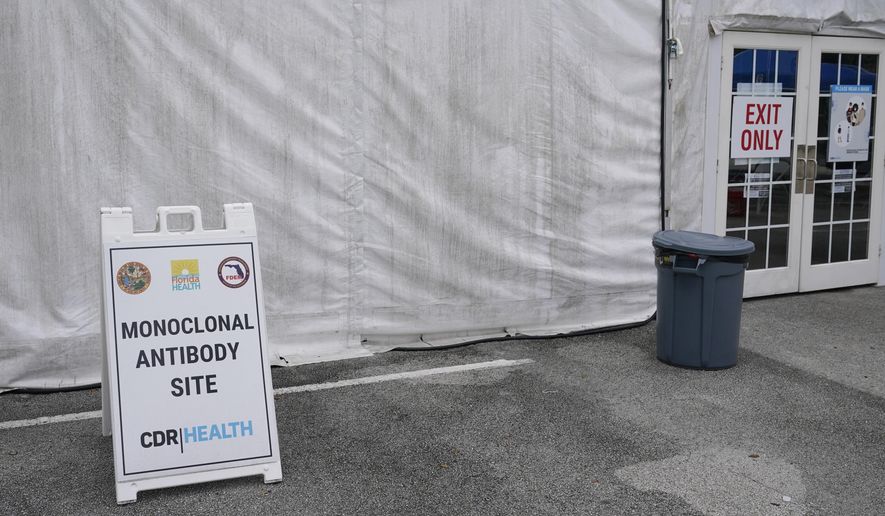The Food and Drug Administration is halting the emergency use of Evusheld — a monoclonal antibody treatment for COVID-19 — because regulators believe it’s no longer effective against dominant variants.
The drug is supposed to be helpful for immunocompromised people who can’t benefit from the vaccines.
However, the FDA for weeks said it was fearful the drug was no longer effective against over 90% of the dominant variants, including XBB.1.5.
“This means that Evusheld is not expected to provide protection against developing COVID-19 if exposed to those variants,” regulators said.
The FDA also said its action “prevents exposing patients to possible side effects of Evusheld such as allergic reactions, which can be potentially serious, at a time when fewer than 10% of circulating variants in the U.S. causing infection are susceptible to the product.”
Regulators said facilities and providers should hang onto supplies of Evusheld in case the COVID-19 landscape changes again and regulators reauthorize it for use against spreading variants.
“The U.S. government recommends that facilities and providers with Evusheld retain all product in the event that [coronavirus] variants which are neutralized by Evusheld become more prevalent in the U.S. in the future,” the FDA said.
In the meantime, officials said people who contract COVID-19 should seek alternatives such as Pfizer’s Paxlovid or remdesivir and molnupiravir, which still work against circulating variants.
AstraZeneca, which makes Evusheld, noted the FDA could reinstate its product if the share of resistant variants decreases to 90% or fewer of cases on a sustained basis.
It also said it’s working on a next-generation, long-acting antibody, or LAAB, that shows promise and could be available in the coming months.
“In in vitro lab studies, the new LAAB has been shown to neutralize all SARS-CoV-2 variants tested to date, including variants that have proved resistant to other monoclonal antibodies,” the drugmaker said. “AstraZeneca is aiming to make the new LAAB available in the second half of 2023, subject to trial readouts and regulatory reviews.”
For more information, visit The Washington Times COVID-19 resource page.
• Tom Howell Jr. can be reached at thowell@washingtontimes.com.




Please read our comment policy before commenting.